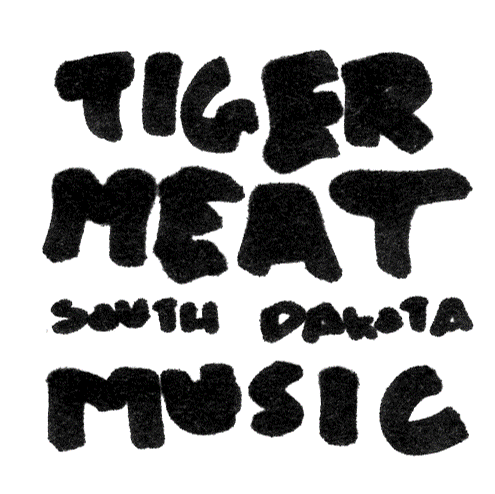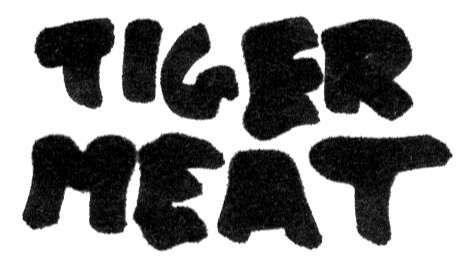gdwflrckt
the mog (2020)
on a holiday run (2021)
Folk, Rock
— track 6 “More Gravy”
Isaac Seaton: The Red Rooster Coffee House is kind of the centerpiece of the whole scene in the Aberdeen area. It’s not the only venue, but it’s my favorite venue for sure. I definitely wouldn’t be a musician without The Rooster because Dan [Cleberg], the guy who runs it, has this way of just telling you, “You’re going to open for a band,” and then you have to show up and play something. That’s kind of how I got my start gigging. It was just, “I have to show up and play. There’s no other choice.” [laughs] And then, yeah, during the pandemic he did a lot, a lot of streaming shows just to kind of keep the music going. We started streaming indoors, and then it just became easier to start doing it outdoors because it’s easier to distance out there. And that’s still happening. It’s just so nice to do it outdoors. Weather permitting.
Brady Hellwig: We’ve played in rain a couple times.
Isaac: Couple times, yeah.
Brady: I kind of started off with stage fright, but I feel like playing at The Rooster kind of brushed that away for me. Just the amount of times we played there.
Isaac: It wears you down. [laughs]
//\\//\\//
Isaac: I started playing viola pretty young in elementary school. Still play with the Civic Symphony up here in Aberdeen. I have a lot of musicians in my family, so they all kind of encouraged me to do that. And through that I started playing banjo with my dad in a band called Raven for a while in high school, and that kind of pushed me towards this whole direction that gdwflrckt is going in. I grew up, born and raised in Aberdeen.
Brady: I am also born and raised in Aberdeen, and I played viola real young in school too.
Isaac: That’s how we met.
Brady: Yeah we met each other in orchestra camp in fourth or fifth grade. I played viola basically all the way through high school and now I play mostly guitar. When I started playing guitar I made a conscious decision to not learn covers, and I just tried to find my own style. I started off watching YouTube videos on how to do technique and stuff, and I’ve just kind of been going from there. I did learn a couple covers, but I didn’t feel like it was doing anything for me. I just didn't want to play other people’s music. I wanted to spend my time creating my own art.
Isaac: It is freeing to just say, “fuck it,” and learn to play your own music rather than learning to play other people’s. Raven was mostly a cover band, I played banjo and my dad played fiddle and we both sang. For a while we were half Bob Dylan songs, half Mountain Goats songs. Dad was all Bob Dylan and I was all Mountain Goats. gdwflrckt basically started because I had the idea for the band name and then I needed a band to go with it.
[It’s pronounced “god awful racket.”]
//\\//\\//
Isaac: [When the pandemic started] we were still meeting, you know, kind of doing band practices. I mean, we all ended up hanging out a lot anyway. We were, you know, trying to keep it distant, and we were still playing distanced shows at The Rooster and everything, but we were just meeting and jamming to keep our fingers busy. We ended up recording, just kind of for the shit of it, in Brady’s basement, and that turned into the mog. So that’s my dad on bass, he started on fiddle and then he switched over to bass just because he wanted to play the bass so he needed an excuse to practice. And then after we released the mog he ended up stepping out of the band, partially because of the pandemic and a million other reasons too. And then our drummer Roger [Frank II] asked his roommate Taylor [Johnson] to join the band on bass. He’s been playing bass for a long time, but mostly known as a saxophone player.
Brady: He’s a really good bass player.
Isaac: I really like to encourage, whoever I’m collaborating with, to encourage their personal sound, you know? And not to suppress any artistic inclinations they have, to push them as far as possible. Me and Roger really get into, kind of, the mathier side of music. We don’t deserve Roger.
So the mog was all recorded with our own equipment in a basement that wasn’t really sound-treated at all so it was really just kind of like practice recordings that we ended up polishing up and releasing, but for on a holiday run we recorded at the Cat Cellar which is Jeremy Burckhard’s recording studio in town. It’s a great, great recording studio. I used to work with Jeremy and I know him pretty well, so he let us use all his recording equipment, which was really nice of him, to rent it out. So that changed the sound significantly, I would say, just having someone else on the board that can help us out with the recording, and having some more equipment, and just more space to spread out in.
Brady: And more knowledge.
Isaac: Yeah, he’s definitely got the know-how. I do all the producing myself. Jeremy helped us out with the recording part, and then I do all the little fidgety stuff, that sound-art side that I really like to experiment with. I really enjoy just writing art music, composition, sound experimentation stuff. [The album yin yue yin yue by yzhk] is more just sonic-art, stuff that wouldn’t fit on a gdwflrckt album. I released it solo. So I’m trying to sit right in the middle with it.
Brady: Have you seen our video for “Bacon Grease”?
Isaac: So that’s called datamoshing. I could talk for 45 minutes about that. You’re abusing how digital video works to make a cool effect, pretty much. You’re kind of breaking it how it’s not supposed to work. Glitch art is this style of art I got into around the same time that we started gdwflrckt, and I think it really works for album covers.
We submitted the new album to some Spotify playlist editor profiles. Trying to be real pro about it [laughs], or you know as pro as we can be. But it’s all DIY. As pro as you can be while being strictly DIY [laughs]. [To get on the different playlists] you have to submit that just through emailing them. Same with the Bandcamp editor team, you can send them a little sample of your work and be like, “Hey check us out.” That whole process takes a little bit to get through, so that’s why you need to get the new album ready and good-to-go about a month beforehand. [To get on the playlists] it’s got to be sent in before the album actually comes out.
//\\//\\//
Brady: I went to a two-year technical school. I’m an electrician. Residential, commercial, I do data, internet stuff. Basically whatever they need me to do. I learn as I go.
Isaac: It happens we’ve got an amp right here that Brady built in college.
Brady: So this is from the first amp that I ever had, it was like a small First Act amp that my mom bought from a ShopKo, and I tore all the pieces out of it for the magnet when I was young because I wanted a powerful magnet. And so I just had all the pieces in a box for years and years, and then I found one of these old intercom speakers and I just threw everything in and connected it to the speaker and drilled all the stuff on the top, and it works.
Isaac: It’s a labor of love.
Brady: It sounds pretty good.
Isaac: He was just fiddling around with it before I came in.
Brady: It’s growly.
Isaac: That’s about as DIY as you can get: DIY your own electronics.
Brady: Yeah I’m pretty proud of it.
GDWFLRCKT’S ESSENTIAL SOUTH DAKOTA ALBUMS
Acquirin’ Signal — Reflections (2020)
Isanti — Songs from Plum Tree Lane (2020)
Better Ride — One Big Family (2016)
Dead Wind — Deadwind (2019)
Scared of the Dark — Something To Burn (2019)
SOURCES
Hellwig, Brady and Isaac Seaton. Interview. By Jon Bakken. 22 June 2021.









